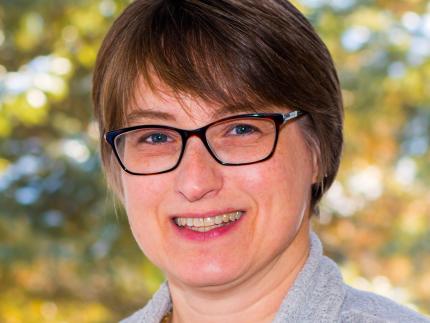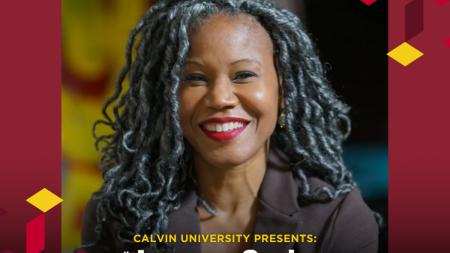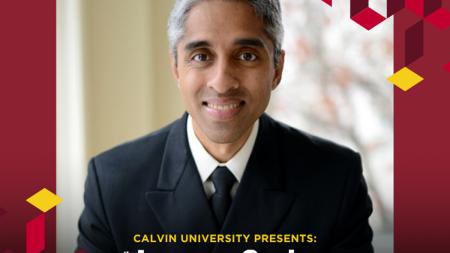Healing Trauma and Giving Hope

In her role as a spiritual care practitioner and psychotherapist, CRC chaplain Alida van Dijk keeps an eye open for ways in which her clients may experience spirituality in their lives.
Experiences such as connecting with nature, appreciating the starry heavens at night, golfing, watching fire crackle in a fireplace, loving your children, or even taking your dog for a walk can have a spiritual aspect, she said.
Although she is a Christian, she leaves the topic of God open when working with the range of people who she sees and who bring different elements of spirituality into her office.
As a practitioner, she said, “I have a very broad definition of spirituality. I believe that whatever brings you joy and is of the kingdom of God is spiritual.”
Working out of an office located in Good News Christian Reformed Church in London, Ont., van Dijk also believes that if she can help a client become more aware of how spirituality works for them, they might be able to tap into that resource when needed. God works in many ways, said van Dijk, and she said she doesn’t want to confine God to any one category if she is going to help a client move forward in their day-to-day dealings and activities.
“I am often hearing spiritual themes all over the place,” she said in a Zoom call from her office. ”I see spirituality as a source of strength, potentially even for people who have been terribly hurt by the church."
Recently granted the Award of Excellence in Spiritual Care and Psycho-Spiritual Therapy and Education from the Canadian Association for Spiritual Care, van Dijk is a trained therapist who has been involved in the CRCNA for many years.
A graduate of Calvin Theological Seminary, she was ordained in 2017 as a commissioned pastor at Good News CRC, and in that role she serves as a Community Chaplain for her work at the Community Counselling Centre of London.
In addition, she was ordained as a ministry associate in 2006 to serve as ministry director at Covenant CRC in St. Catharines, Ont. She also worked for nearly two years as an administrative assistant to the director of Canadian Ministries in the CRCNA’s Burlington office.
All of these roles play into her work as a counselor, she says. But there is something else that helps to keep her on track with addressing the pain and suffering that some clients bring with them into her office. And that is how trauma affects the heart, soul, and body of people who have experienced difficult and trying circumstances, whether through military service, domestic abuse, or any other harsh situation in their lives.
“I look at this suffering as being the potential for post-traumatic growth,” she said. “Many experiences can be traumatic for you. You can suffer tremendously, but that pain doesn’t have to be a death sentence. There can be a resurrection.”
She completed a Ph.D. program on the subject, titling her dissertation Not Sinking with the Titanic: Personal Agency as a Key Factor in Transforming Trauma into Post-traumatic Growth. She earned the degree in human relationships in the field of spiritual care and psychotherapy from Waterloo Lutheran Seminary, now known as Martin Luther University College.
In the dissertation she writes: “Most people deal with difficult experiences at some point in their lifetime, such as losses, accidents, unexpected circumstances, or receiving a diagnosis of an illness that alters the planned and hoped-for trajectory of their lives.
“Some people would describe these experiences as traumatic. Other people endure horrific experiences such as an airplane crash, kidnapping, rape, torture, effects of war, shootings, or natural disasters like earthquakes and tsunamis.”
Her thesis, she adds, “investigates . . . some of the contributing factors that help the transformation towards post-traumatic growth in people’s lives following a traumatic experience.”
She explores this area using the biblical narrative of the concubine in Judges 19 to examine powerlessness and victimization; the narrative of Job to wrestle with the question of unjust suffering; the narrative of Joseph, who was sold into slavery by his brothers, to explore meaning making and post-traumatic growth; and the story of Jesus and the theology of the cross, “which makes possible the ability to change from a life-limiting theology of trauma to a life-giving theology of trauma,” she writes.
One area in which people experience trauma is in their life of faith, she said, especially if the client has been part of a rigid religion — such as one “that is judgmental and asks ‘Who is in, and who is out?’”
She comes at this with the conviction that God is not a rigid God. “The things of God tend to be life-giving. . . .” she said. “I don’t make decisions for people, although I can help them explore the more destructive experiences in their lives. I do try to tease out the trauma they have experienced and help them to see how they can grow from it.”
Often, by acknowledging the trauma and working through it, a client can find ways to get beyond it. Traumatic experiences can be trapped in a person’s body, without their realizing it. She assists her clients in seeing how they have processed trauma and then in finding ways to release that trauma.
In the letter announcing that she had been chosen to receive the Award of Excellence, Philip Murray, chair of the professional practice commission of the Canadian Association for Spiritual Care, offered a list of van Dijk’s accomplishments.
“This award recognizes your excellent work at St. Joseph’s Hospital in London, Ontario, and also for London Health Sciences, where you brought skill and creativity as you offered spiritual care to Canadian veterans and those with complex and continuing illnesses, such as when you developed resiliency groups where patients could process their illness as well as connect with the sacred aspects of life that give them strength,” he wrote.
“We also recognize your work establishing the Community Counselling Centre of London and your adaptation . . . to the unique demands of the COVID-19 pandemic when you moved all counselling sessions and clinical supervision to an online format.”
Serving the people who live near Good News CRC, the counseling center has been able to provide affordable treatment to people who might otherwise have a hard time paying for the service.
Many of her clients come from tough places and have experienced their share of trauma. But the doors — or over the past year, computer screens — are open to them.
“Good News has always had a heart to be a presence in this community,” she said. “People can come here with no strings attached. We see ourselves as a presence of hope, light, and healing in this neighborhood.”
Learn more about the Community Counselling Centre by clicking here.


